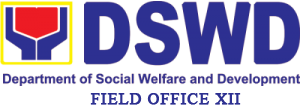The members of the Regional Statistics Committee (RSC) in region 12 recently met in Koronadal City to discuss DSWD tool used in identifying poor families in comparison with those used by the Philippine Statistics Authority.
Salahuddin M. AbdelGafur, Social Marketing Officer of Listahanan, presented DSWD’s Listahanan modified project cycle, indicators in identifying poor families and data sharing requirements.
“Each program has its own eligibility criteria in selecting their beneficiaries and being “poor” as identified in the Listahanan is usually just one of the eligibility criteria,” AbdelGafur said.
Listahanan used two assessment methods: Family Assessment Form (FAF) and Mobile Tablet. AbdelGafur said “there are forty-six (46) variables in the Family Assessment Form (FAF) that collects pertinent information about the welfare level of a family. Indicators collected in the FAF are based on official government surveys and censuses such as the 2009 Family Income and Expenditure Survey (FIES), Labor Force Survey (LFS), and 2007 Census of Population.”
AbdelGafur added that “parallel with PSA, a statistical model which is called Proxy Means Test (PMT) is used by Listahanan that approximates family income based on observable and verifiable proxy indicators of the family’s income such as materials used in housing structure, family’s access to basic services and facilities like water and electricity, and ownership of specific assets”.
Listahanan as a database management system aims to have a unified set of criteria for identifying the poor that would enable synchronization and convergence of all resources into a particular group of poor families.
Executive Order 867 mandates NGAs to adopt Listahanan as mechanism for identifying poor households who shall be recipients of social protection programs nationwide. AbdelGafur shared to the body that Listahanan shall be launching the new database this month of April 2016 and to follow shall be the regional database launching as well as the crafting of the profile of the poor.
Engr. Misuari A. Abdullah, coordinator of MINCONSP, asked if they have to enter into a MOA again with Listahanan since they have existing MOA with the department. AbdelGafur answered that all agencies with existing MOA with the department have only to submit a letter detailing the data requirements they need.
In the conduct of Listahanan, Herlita Caraan, Provincial Statistics Officer of Sultan Kudarat, asked on how DSWD able to handle multiple issues and concerns like false-identity and duplicity, etc. AbdelGafur said “All issues and concerns were vividly and carefully processed/facilitated with confidentially. As well, a redress grievance system, and hotline were created to accommodate all issues, and active monitoring and supervision were engaged in Listahanan at the field level and in coordination with the Local Government Unit. This includes courtesy calls and orientation activities to ensure that LGUs know and understand the project implementation.”
Since Listahanan is said to be an information management system, Dr. Arturo G. Valero, Regional Director of NEDA-XII, asked if the data statistics of Listahanan can be viewed online for easy access. AbdelGafur said “As far as data on statistics is concerned, it can be viewed online however, we are waiting for the guidelines from DSWD Central Office on the new Listahanan Database and also CO said that they are revisiting the Data Privacy Act of 2002 for the Listahanan database.”
Listahanan uses proxy indicators to identifying the poor, Atty. Maqtahar L. Manulon, Regional Director of RSC-XII, asked if there’s an easy/simple way to identify poor individuals using proxy models. AbdelGafur reiterated “similar with PSA, Proxy Means Test (PMT) is used by Listahanan that approximates family income based on observable and verifiable proxy indicators of the family’s income such as materials used in housing structure, family’s access to basic services and facilities like water and electricity, and ownership of specific assets”.
AbdelGafur added “Not being identified as beneficiary of any social protection programs does not automatically mean that a member of household was excluded from the Listahanan database”,
Towards building a unified data management system, AbdelGafur informed that members of RSC that Listahanan make database of families available AT NO COST. Further, the list of poor families generated from the database, however, can be shared with national government agencies and other stakeholders upon execution of a Memorandum of Agreement (MOA) between DSWD and the data user.
AbdelGafur shared Listahahan’s terms and condition to the members of RSC:
- What are the requirements to have a data sharing agreement with DSWD?
a. A letter detailing the data requirements of the requesting party.
b. A memorandum of agreement (MOA)* signed by an authorized representative of the requesting party, and
*with attached local council or board resolution authorizing the signatory to enter into a MOA with the DSWD.
- Why does data sharing require execution of memorandum of agreement (MOA)?
The Listahanan’s data is protected under a memorandum of agreement, which ensures that the data will be used only for its intended purposes.
This is also in consonance with the Data Privacy Act of 2012, which is intended to protect the integrity and security of personal data in both the private and public sectors.
The data sharing agreement stipulates that the data user must:
a) Integrate Listahanan in all its social marketing activities – highlighting or emphasizing the use of the targeting system in identifying beneficiaries of its social protection programs and projects.
b) Provide regular feedback on data utilization and resolution on complaints regarding beneficiary eligibility.
c) Ensure the confidentiality and use of requested data only for purposes agreed upon.
DSWD spearheads the process of identifying the poor in the Listahanan through National Household Targeting Office (NHTO) or Listahanan where all DSWD Field Offices also organized its National Household Targeting Units (NHTU).
The activity was attended by PSA XII, NEDA XII, DepEd XII, DSWD XII, DOH XII, MINCONSP and Local Government Officers.
